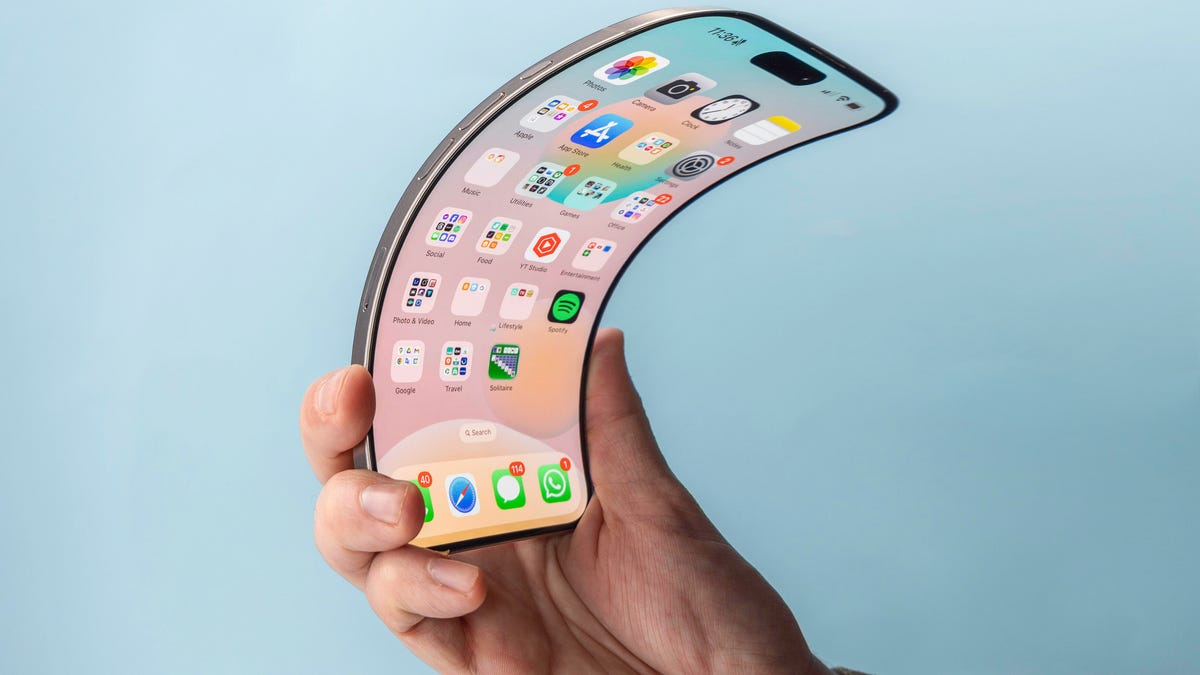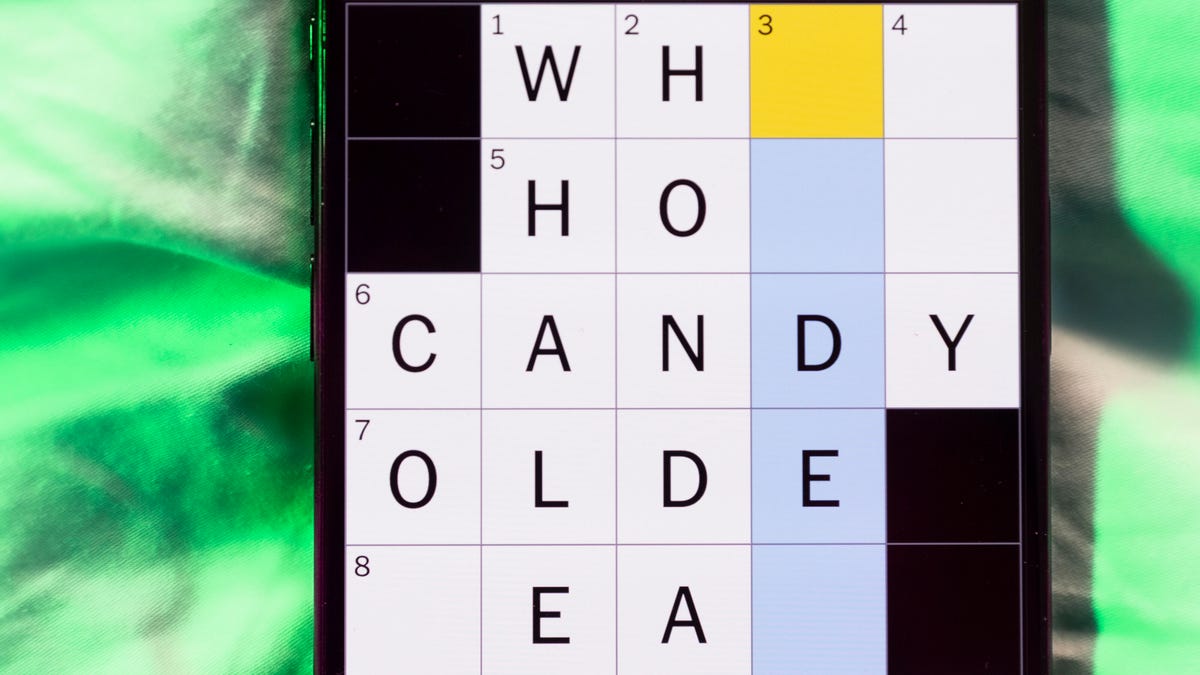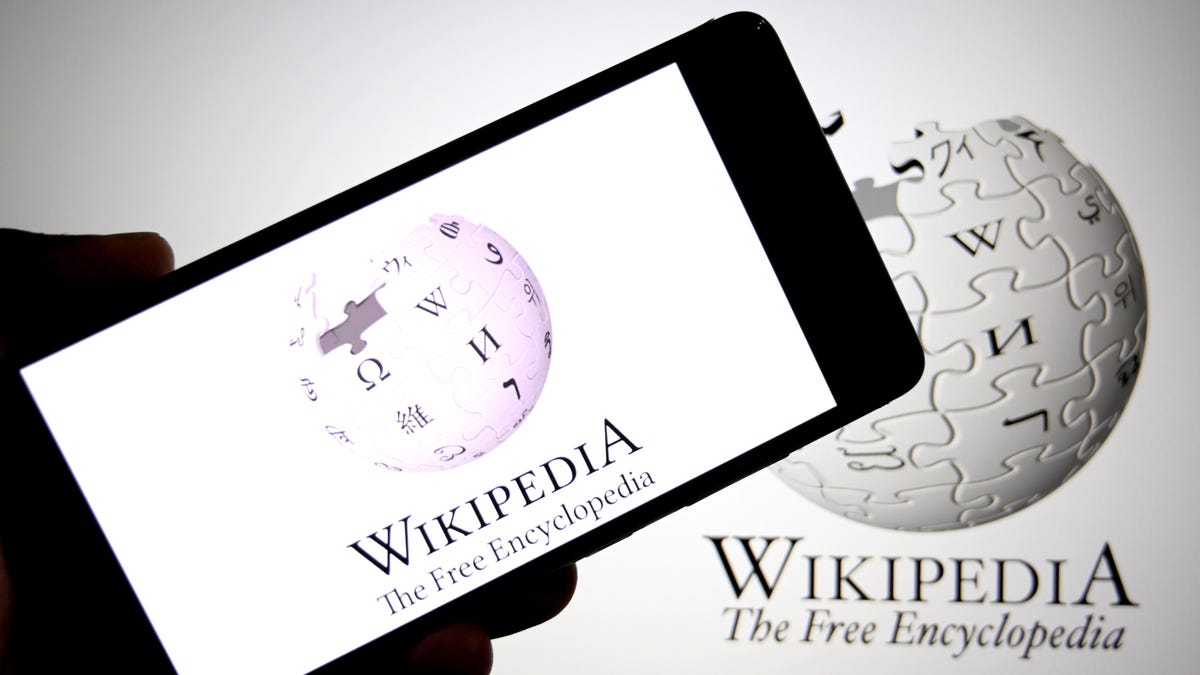Technologies
Apple Really Needs to Launch a Foldable iPhone Flip in September
Apple’s iPhone 17 lineup is just around the corner. If a foldable iPhone isn’t part of it, Apple risks losing ground to Samsung.

Apple’s iPhone 17 is expected to launch in a matter of weeks at its September event. From upgraded cameras to AI improvements in iOS 26, the new iPhone lineup is expected to get a host of new features. But the long-rumored foldable iPhone Flip isn’t expected to be part of this year’s launch. Most Android phone-makers, including Samsung, Google, Motorola, OnePlus, Xiaomi and Honor, have been selling folding devices for years now, and it’s beginning to feel like Apple is late to the party. That might be a problem.
Apple dominates in the premium phone category, but foldables — which fit into the premium space in terms of price — are already nipping at its heels, with Motorola telling CNET that 20% of customers buying its Razr foldable jumped ship from Apple. Meanwhile, Samsung is in the seventh generation of its Flip and Fold series. As Lisa Eadicicco discovered during a visit to Seoul, «foldables are everywhere» in Samsung’s home country of South Korea.
With nearly every major Android phone-maker entering the foldable market, Apple risks losing potential customers. It also runs the risk of letting a rival like Samsung become the go-to name for foldables, which could make it harder for Apple to make an impact if it eventually launches its own device. Furthermore, early adopters drawn to foldable tech may be too entrenched in the Android ecosystem by the time Apple’s phone arrives to want to switch to iOS.
Apple is unlikely to be worried. It’s estimated that around 20 million foldables from all manufacturers were sold worldwide in 2023, while Apple reportedly sold 26.5 million iPhone 14 Pro Max handsets in the first half of that year alone. In 2024, foldable sales were flat — and 2025 isn’t fairing much better, according to analysts at CounterPoint Research, although Samsung did report record numbers of preorders for its latest foldable. Clearly, Apple feels it has yet to miss the boat.
Apple has always found success in biding its time, observing the industry and launching its own take on a product when it’s ready. Apple didn’t invent phones, tablets, smartwatches or computers, but it found ways to take existing products and make them more useful, more valuable in day-to-day life and — dare I say — more exciting. It’s why the iPhone, iPad, Apple Watch and Mac lines dominate the market today.
For me, I need to see Apple’s take on the foldable phone. I’ve written before about how disappointed I am in foldables. I’ve been a mobile reporter for over 14 years and phones have become increasingly dull as they’ve converged to become slight variations on the same rectangular slab.
Read more: Best Flip Phone for 2025
Foldables promised something new, something innovative, something that briefly sparked some excitement in me, but several years in, that excitement has dwindled to the point of being extinguished. They are fine products and while I like the novelty of a screen that bends, they’re not a revolution in how we interact with our phones. Not in the way that the arrival of the touchscreen was when we were still pushing buttons to type out texts.
I did hope that Google’s Pixel Fold would be the phone to catapult the foldable forward, and while the recent Pixel 9 Pro Fold — the second generation of Google’s foldable — does offer some great updates, it still doesn’t offer any kind of revolution. Instead, it feels more like a «me too» move from Google. Ditto for the OnePlus Open. So I’m left instead to look toward Apple, a company with a track record for product revolutions, to create a new take on the genre that genuinely drives forward how we use our phones.
That innovation won’t just come from the product design. Apple works closely with its third-party software developers, and it’s that input that would help a folding iPhone become genuinely useful. My biggest complaint around foldables right now is that while the hardware is decent, the devices are essentially just running standard versions of Android with a handful of UI tweaks thrown in. They’re regular phones that just happen to bend.
Few Android developers are embracing the folding format, and it’s not difficult to see why; the users aren’t there in sufficient numbers yet to justify the time and expense to adapt their software across a variety of screen sizes. The multiple folding formats already available mean Android foldables face the same fragmentation issue that has plagued the platform since the beginning. Android-based foldables are simply a more difficult platform for developers to build for than regular phones. Apple would be able to change that, as it proved with the iPhone and iPad.
Given Apple’s close relationships with top-tier developers — not to mention its own vast developer team — I expect an eventual Apple foldable to offer innovations that make it more than just an iPhone that folds in half.
And I truly hope it does. I want to look forward to tech launches again. I want to feel excited to get a new gadget in my hands and feel that «wow» moment as I do something transformative for the first time.
In short, I don’t want to be bored by technology anymore. Apple, it’s over to you.
Technologies
Today’s NYT Mini Crossword Answers for Tuesday, Oct. 21
Here are the answers for The New York Times Mini Crossword for Oct. 21.

Looking for the most recent Mini Crossword answer? Click here for today’s Mini Crossword hints, as well as our daily answers and hints for The New York Times Wordle, Strands, Connections and Connections: Sports Edition puzzles.
Today’s Mini Crossword features a lot of one certain letter. Need help? Read on. And if you could use some hints and guidance for daily solving, check out our Mini Crossword tips.
If you’re looking for today’s Wordle, Connections, Connections: Sports Edition and Strands answers, you can visit CNET’s NYT puzzle hints page.
Read more: Tips and Tricks for Solving The New York Times Mini Crossword
Let’s get to those Mini Crossword clues and answers.
Mini across clues and answers
1A clue: Bone that can be «dropped»
Answer: JAW
4A clue: Late scientist Goodall
Answer: JANE
5A clue: Make critical assumptions about
Answer: JUDGE
6A clue: Best by a little
Answer: ONEUP
7A clue: Mercury, Jupiter, Saturn, etc.
Answer: GODS
Mini down clues and answers
1D clue: Just kind of over it
Answer: JADED
2D clue: Beef cattle breed
Answer: ANGUS
3D clue: Shed tears
Answer: WEEP
4D clue: 2007 comedy-drama starring Elliot Page and Michael Cera
Answer: JUNO
5D clue: Refresh, as one’s memory
Answer: JOG
Technologies
Wikipedia Says It’s Losing Traffic Due to AI Summaries, Social Media Videos
The popular online encyclopedia saw an 8% drop in pageviews over the last few months.

Wikipedia has seen a decline in users this year due to artificial intelligence summaries in search engine results and the growing popularity of social media, according to a blog post Friday from Marshall Miller of the Wikimedia Foundation, the organization that oversees the free online encyclopedia.
Don’t miss any of our unbiased tech content and lab-based reviews. Add CNET as a preferred Google source.
In the post, Miller describes an 8% drop in human pageviews over the last few months compared with the numbers Wikipedia saw in the same months in 2024.
«We believe that these declines reflect the impact of generative AI and social media on how people seek information, especially with search engines providing answers directly to searchers, often based on Wikipedia content,» Miller wrote.
Blame the bots
AI-generated summaries that pop up on search engines like Bing and Google often use bots called web crawlers to gather much of the information that users read at the top of the search results.
Websites do their best to restrict how these bots handle their data, but web crawlers have become pretty skilled at going undetected.
«Many bots that scrape websites like ours are continually getting more sophisticated and trying to appear human,» Miller wrote.
After reclassifying Wikipedia traffic data from earlier this year, Miller says the site «found that much of the unusually high traffic for the period of May and June was coming from bots built to evade detection.»
The Wikipedia blog post also noted that younger generations are turning to social-video platforms for their information rather than the open web and such sites as Wikipedia.
When people search with AI, they’re less likely to click through
There is now promising research on the impact of generative AI on the internet, especially concerning online publishers with business models that rely on users visiting their webpages.
(Disclosure: Ziff Davis, CNET’s parent company, in April filed a lawsuit against OpenAI, alleging it infringed Ziff Davis copyrights in training and operating its AI systems.)
In July, Pew Research examined browsing data from 900 US adults and found that the AI-generated summaries at the top of Google’s search results affected web traffic. When the summary appeared in a search, users were less likely to click on links compared to when the search results didn’t include the summaries.
Google search is especially important, because Google.com is the world’s most visited website — it’s how most of us find what we’re looking for on the internet.
«LLMs, AI chatbots, search engines and social platforms that use Wikipedia content must encourage more visitors to Wikipedia, so that the free knowledge that so many people and platforms depend on can continue to flow sustainably,» Miller wrote. «With fewer visits to Wikipedia, fewer volunteers may grow and enrich the content, and fewer individual donors may support this work.»
Last year, CNET published an extensive report on how changes in Google’s search algorithm decimated web traffic for online publishers.
Technologies
OpenAI Says It’s Working With Actors to Crack Down on Celebrity Deepfakes in Sora
Bryan Cranston alerted SAG-AFTRA, the actors union, when he saw AI-generated videos of himself made with the AI video app.

OpenAI said Monday it would do more to stop users of its AI video generation app Sora from creating clips with the likenesses of actors and other celebrities after actor Bryan Cranston and the union representing film and TV actors raised concerns that deepfake videos were being made without the performers’ consent.
Actor Bryan Cranston, the Screen Actors Guild-American Federation of Television and Radio Artists (SAG-AFTRA) and several talent agencies said they struck a deal with the ChatGPT maker over the use of celebrities’ likenesses in Sora. The joint statement highlights the intense conflict between AI companies and rights holders like celebrities’ estates, movie studios and talent agencies — and how generative AI tech continues to erode reality for all of us.
Sora, a new sister app to ChatGPT, lets users create and share AI-generated videos. It launched to much fanfare three weeks ago, with AI enthusiasts searching for invite codes. But Sora is unique among AI video generators and social media apps; it lets you use other people’s recorded likenesses to place them in nearly any AI video. It has been, at best, weird and funny, and at worst, a never-ending scroll of deepfakes that are nearly indistinguishable from reality.
Cranston noticed his likeness was being used by Sora users when the app launched, and the Breaking Bad actor alerted his union. The new agreement with the actors’ union and talent agencies reiterates that celebrities will have to opt in to having their likenesses available to be placed into AI-generated video. OpenAI said in the statement that it has «strengthened the guardrails around replication of voice and likeness» and «expressed regret for these unintentional generations.»
OpenAI does have guardrails in place to prevent the creation of videos of well-known people: It rejected my prompt asking for a video of Taylor Swift on stage, for example. But these guardrails aren’t perfect, as we’ve saw last week with a growing trend of people creating videos featuring Rev. Martin Luther King Jr. They ranged from weird deepfakes of the civil rights leader rapping and wrestling in the WWE to overtly racist content.
Don’t miss any of our unbiased tech content and lab-based reviews. Add CNET as a preferred Google source.
The flood of «disrespectful depictions,» as OpenAI called them in a statement on Friday, is part of why the company paused the ability to create videos featuring King.
Statement from OpenAI and King Estate, Inc.
The Estate of Martin Luther King, Jr., Inc. (King, Inc.) and OpenAI have worked together to address how Dr. Martin Luther King Jr.’s likeness is represented in Sora generations. Some users generated disrespectful depictions of Dr.…— OpenAI Newsroom (@OpenAINewsroom) October 17, 2025
Bernice A. King, his daughter, last week publicly asked people to stop sending her AI-generated videos of her father. She was echoing comedian Robin Williams’ daughter, Zelda, who called these sorts of AI videos «gross.»
I concur concerning my father.
Please stop. #RobinWilliams #MLK #AI https://t.co/SImVIP30iN— Be A King (@BerniceKing) October 7, 2025
OpenAI said it «believes public figures and their families should ultimately have control over how their likeness is used» and that «authorized representatives» of public figures and their estates can request that their likeness not be included in Sora. In this case, King’s estate is the entity responsible for choosing how his likeness is used.
This isn’t the first time OpenAI has leaned on others to make those calls. Before Sora’s launch, the company reportedly told a number of Hollywood-adjacent talent agencies that they would have to opt out of having their intellectual property included in Sora. But that initial approach didn’t square with decades of copyright law — usually, companies need to license protected content before using it — and OpenAI reversed its stance a few days later. It’s one example of how AI companies and creators are clashing over copyright, including through high-profile lawsuits.
(Disclosure: Ziff Davis, CNET’s parent company, in April filed a lawsuit against OpenAI, alleging it infringed Ziff Davis copyrights in training and operating its AI systems.)
-

 Technologies3 года ago
Technologies3 года agoTech Companies Need to Be Held Accountable for Security, Experts Say
-

 Technologies3 года ago
Technologies3 года agoBest Handheld Game Console in 2023
-

 Technologies3 года ago
Technologies3 года agoTighten Up Your VR Game With the Best Head Straps for Quest 2
-

 Technologies4 года ago
Technologies4 года agoVerum, Wickr and Threema: next generation secured messengers
-

 Technologies4 года ago
Technologies4 года agoBlack Friday 2021: The best deals on TVs, headphones, kitchenware, and more
-

 Technologies4 года ago
Technologies4 года agoGoogle to require vaccinations as Silicon Valley rethinks return-to-office policies
-

 Technologies4 года ago
Technologies4 года agoOlivia Harlan Dekker for Verum Messenger
-

 Technologies4 года ago
Technologies4 года agoiPhone 13 event: How to watch Apple’s big announcement tomorrow
